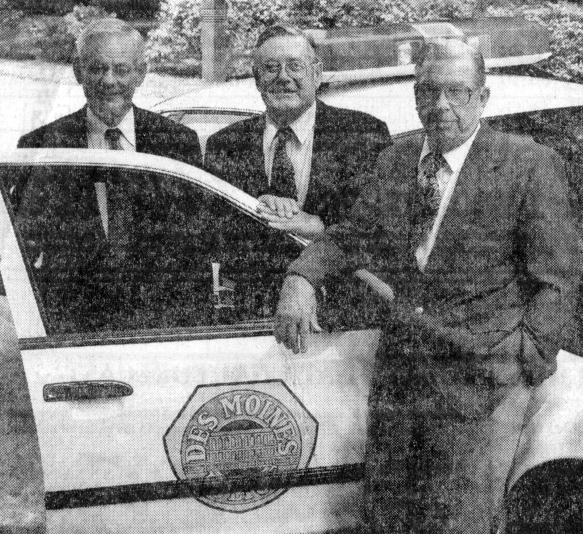
The Des Moines Register
Sunday, November 2, 1997, Page 4B
letters@news.dmreg.com
Three decades of fighting drugs
Police chiefs have been battling in the Des Moines area for about 30 years.
By TOM ALEX
REGISTER STAFF WRITER
They will be remembered as the chiefs of police who
waged Des Moines' drug war from the late 1960s through the end of the century.
But it wasn't really a war, said former Chief Wendell Nichols. In
a real war, you wouldn't have to run to a judge for a search warrant; you simply would
look for drugs where you expect to find them.
Narcotics was a demon that awakened when the baby boomers came of age.
Nichols, the first of the three chiefs to watch the wave of drugs roll over the
Midwest from the coasts, recently recalled that police were inventing techniques day by
day. There was no manual from which to learn.
Nichols, a member of the old vice unit in the 1950s, became chief of
police in 1968. Billie Wallace took the helm in 1979, followed by William Moulder in
1984.
The fight to combat drugs still isn't a war, perhaps, but there now are
23 officers and supervisors in the Des Moines vice and narcotics section and nearly all of
them are attacking narcotics. A skeleton crew is working the once-powerful vice
team.
"We thought we had big drug problems when I was chief,"
Nichols said, but what you have now is like an ocean. What we had then was like a
bucket of water."
Moulder was a Kansas City police officer when drugs became popular in
the 1960s. Two things run through his mind when he recalls the beginnings of the
drug culture: Timothy Leary leading young people to mind-altering drugs and the E.I. du
Pont de Nemours and Co., slogan "Better things for better living .... through
chemistry."
Nichols recalled that when he worked narcotics cases in the 1950s, he
was assigned to the vice unit, which was witnessing the sunset of its heyday enforcing
liquor laws, gambling laws and prostitution.
"We had some marijuana and some heroin, that stuff has always been
around, he said. We even had them trying to flush it down the toilet in those days.
But it hadn't caught on yet."
And then in the late 1960s all hell broke loose. "We had
marijuana and LSD and glue sniffing and they were doing things with seeds. We formed
a countywide task force and because the sheriff was with us, we could cross jurisdictional
boundaries."
Nichols had the narcotics and intelligence units working closely with
each other.
"When we hired more police officers, we were finding some of them
had used drugs overseas (in Vietnam). We tried not to blame them for what happened
during war time. We sometimes overlooked that. But if they tried it again when
they came back, we had to disqualify them."
Nichols added, "When we started hearing that professional athletes
and other famous people were using drugs, we knew we were in trouble. It was
becoming glamorous.
Nichols said during his time as chief, "We tried a lot of things.
Many of them didn't work but that didn't keep us from trying other things.
One thing they never should have done is taking police officers out of the schools."
Wallace remembers that when he became chief, "We were still
wrestling with marijuana. Should it be illegal? How about a little bit on
possession; a little bit isn't so bad. Our county attorney at the time wanted us to
kind of back off if we couldn't prove intent to sell.
"We were still fighting the attitudes of the '60s and '70s.
I can still remember the difficulty our officers had in making sufficient cause to have
charges filed. Marijuana was still a social thing at that time," Wallace said.
Moulder's narcotics unit is setting new records with numbers of arrests
each year. At the end of 1996, police had made cases against 1,953 people on drug
charges. That was up 10 percent from the 1,775 drug cases made in 1995.
Spin back in time: from 1960 through 1965, Des Moines police made a
total of 75 narcotics arrests. In the next five years, they made some 440 arrests.
Then in 1971, they made 376 arrests, and the lid was off any hope of curbing
illegal drugs in the city.
"Right now drug enforcement is a black hole that will suck up any
resources that get near it," Moulder said. "Until we can curb the appetite
and acceptance of drugs, I don't see it getting any better."

BOB NANDELL/The Register
Des Moines police chiefs past and present, from left, William Moulder, Billie Wallace and Wendell Nichols.